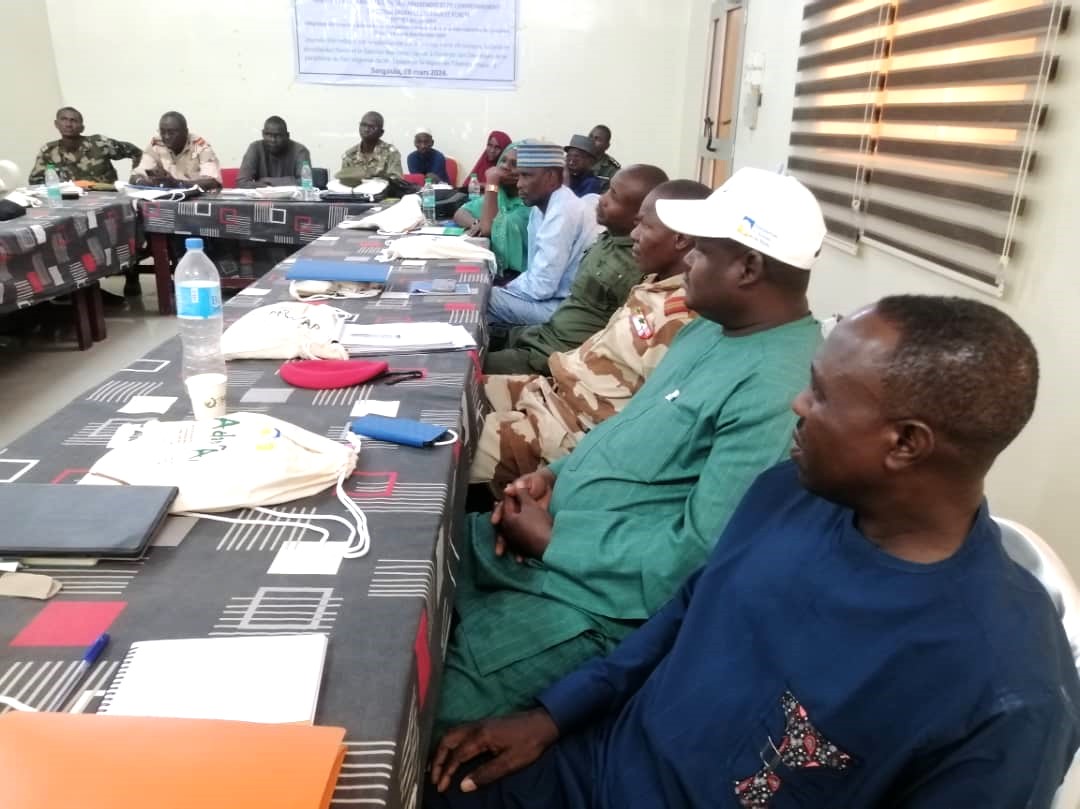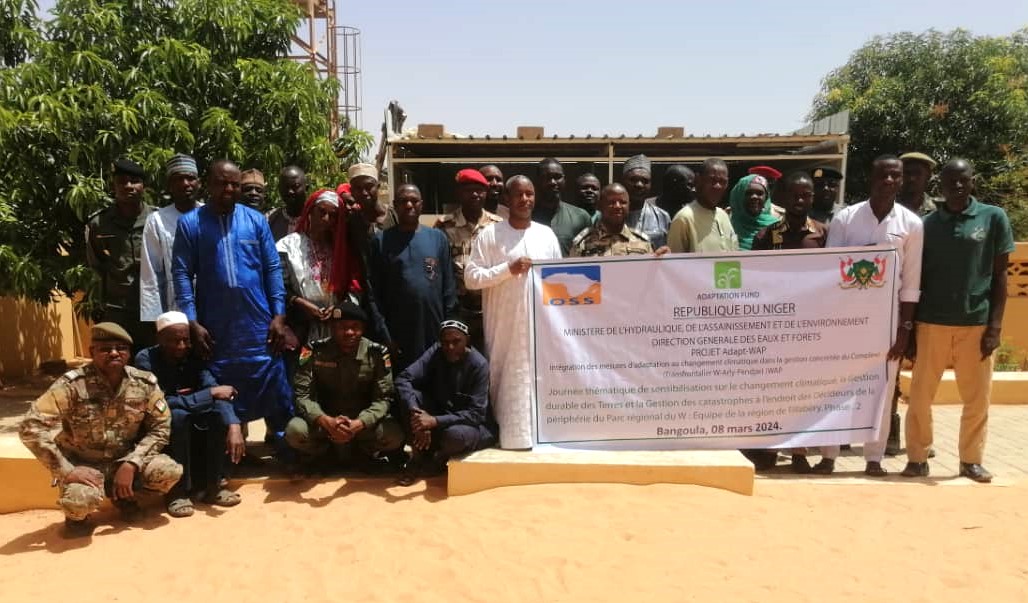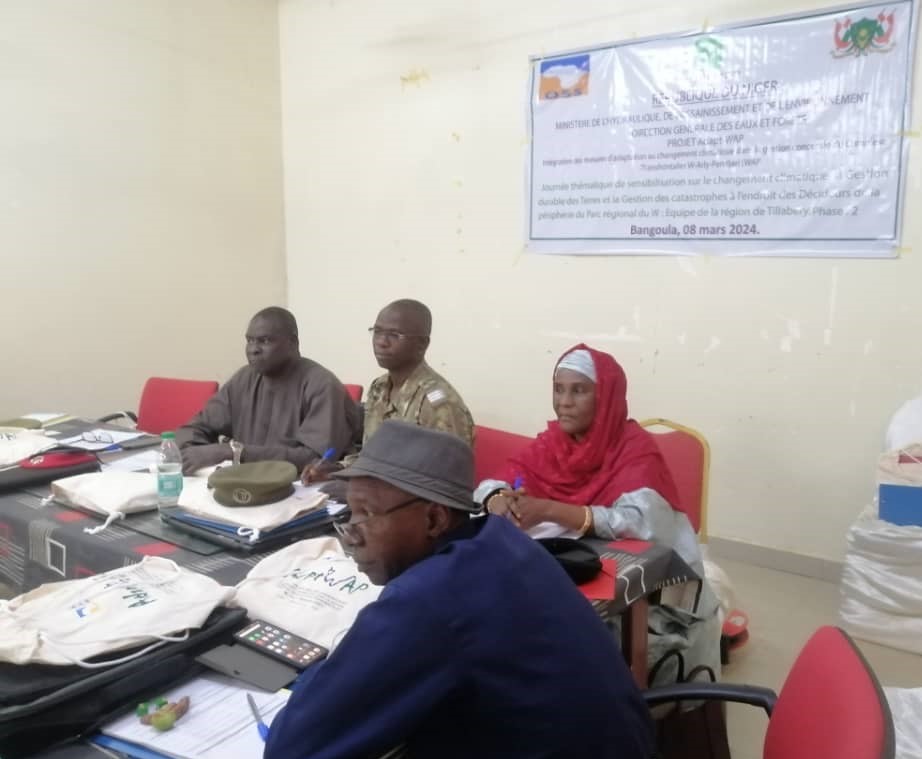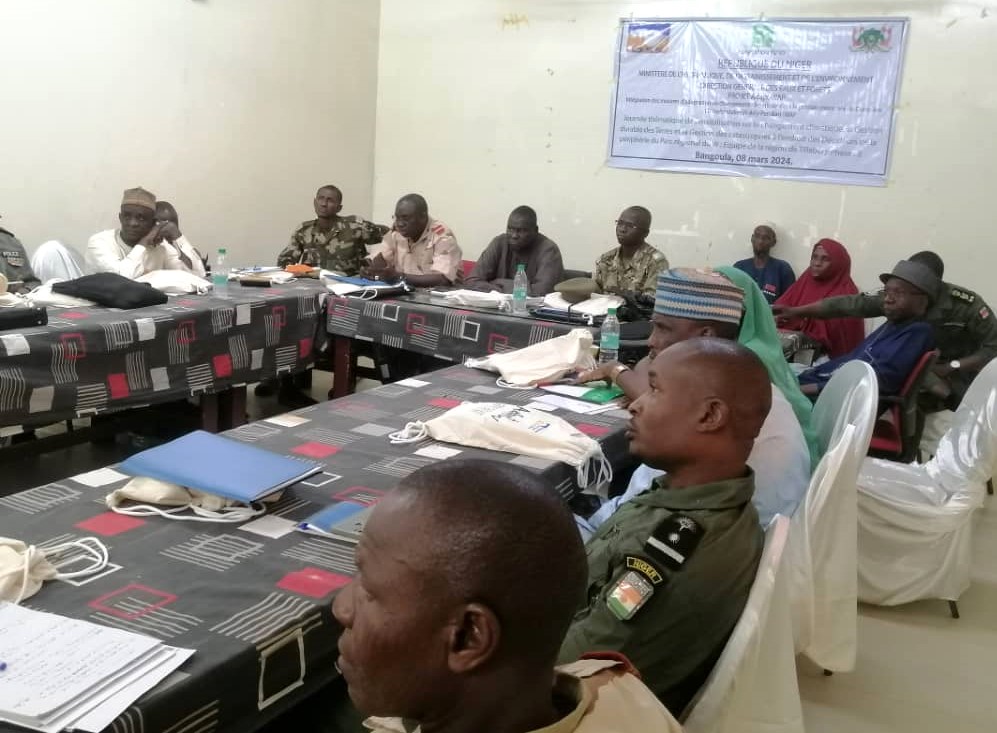



A series of training sessions for decision-makers in Tillabéry was organized as part of the AdaptWAP project (Integration of Climate Change Adaptation Measures into the Coordinated Management of the W-Arly-Pendjari Complex). These trainings aimed to raise awareness and enhance the skills of local decision-makers on the issues of climate change, sustainable land management, and disaster management, particularly in the region hosting the W National Park in Niger. It is worth noting that the W National Park in Niger is located in the extreme south of the Tillabéry region and extends along the borders with Burkina Faso and Benin.
During these training sessions, participants gained a comprehensive understanding of the impacts of climate change on their region, including issues related to the availability of natural resources, food security, and vulnerability to natural disasters such as droughts, vegetation fires, and floods. Additionally, they were briefed on the importance of the ongoing multi-hazard early warning system being implemented as part of the project. This system aims to alert local populations to the occurrence of extreme weather events such as droughts, floods, and vegetation fires, enabling them to take appropriate preventive measures.
Decision-makers were also trained on best practices in sustainable land management, including approaches such as agroforestry, soil conservation, and assisted natural regeneration. Furthermore, disaster management strategies were discussed, focusing on preparedness for extreme weather events and mitigation measures to reduce human and material losses.
Through these trainings, decision-makers in Tillabéry are now better equipped to integrate considerations related to climate change, sustainable land management, and disaster management into their policies, plans, and local development programs. This contributes to strengthening the resilience of local communities to growing climate challenges and promoting sustainable socio-economic development in the region.